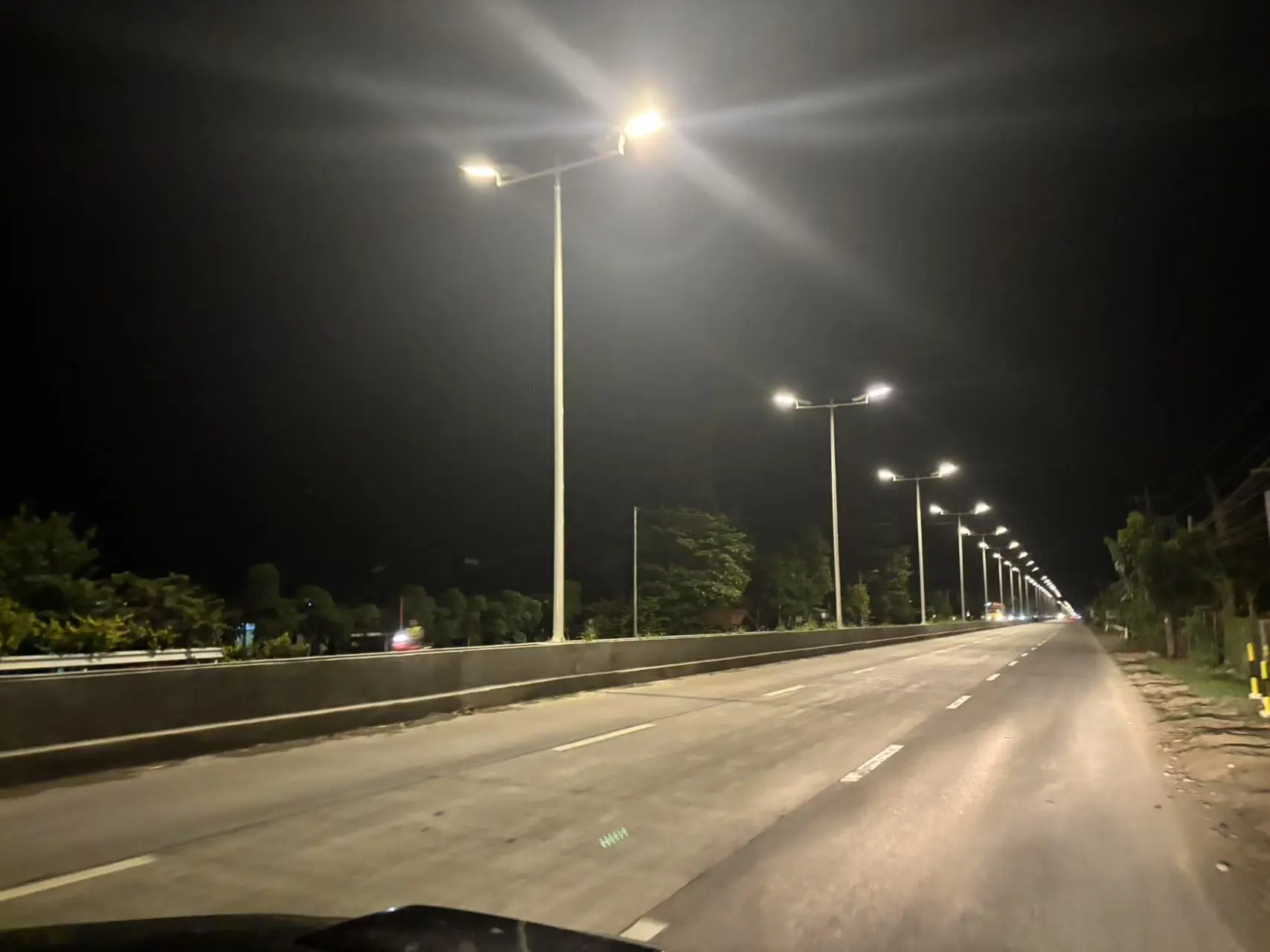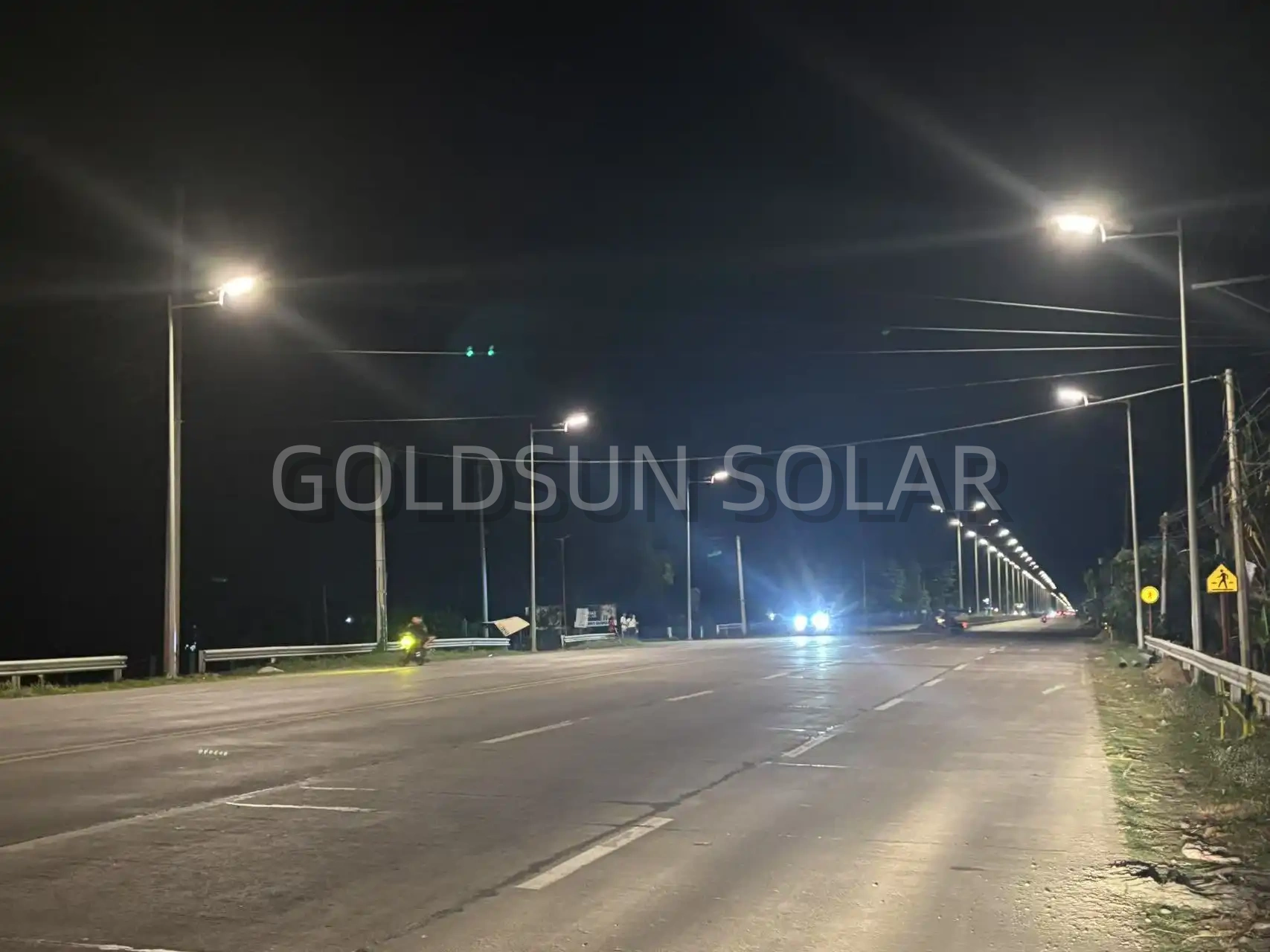How Solar Street Light Suppliers Ensure Quality and Compliance?
In the rapidly evolving landscape of renewable energy solutions, solar street lighting has emerged as a sustainable and cost-effective alternative to traditional grid-powered lighting systems. As cities worldwide transition toward greener infrastructure, the role of solar street light suppliers in ensuring quality and compliance has become increasingly critical. These suppliers must navigate complex quality control processes, adhere to international standards, and implement rigorous testing protocols to deliver reliable, efficient, and durable solar lighting solutions.

What Certification Standards Should Quality Solar Street Light Suppliers Meet?
ISO 9001 Quality Management System
The foundation of quality assurance for solar street light suppliers begins with implementing a robust ISO 9001 quality management system. This internationally recognized standard provides a framework for consistent quality control throughout manufacturing. Reputable solar street light suppliers invest significantly in establishing comprehensive quality management systems that track every aspect of production, from raw material procurement to final product testing. By adhering to ISO 9001 standards, suppliers ensure that each component—including LED modules, solar panels, batteries, and controllers—meets precise specifications. For customers, working with certified solar street light suppliers offers assurance that products are manufactured under controlled conditions with consistent quality verification at every stage. These suppliers document all quality processes, conduct regular internal audits, and continuously improve their systems based on performance data and customer feedback.
IEC Standards for Solar Components
When evaluating solar street light suppliers, attention to IEC standards becomes crucial for ensuring component-level quality and safety. The IEC 61215 and IEC 61730 standards specifically address photovoltaic module design qualification and safety, requiring solar street light suppliers to submit their solar panels to rigorous testing. Similarly, IEC 62133 governs safety requirements for batteries and battery systems, which are fundamental components of solar street lighting systems. Professional solar street light suppliers ensure their battery technologies undergo extensive testing for thermal stability, charging parameters, and longevity. Additionally, IEC 60598-2-3 specifically addresses luminaires for road and street lighting, covering electrical safety and performance requirements. By meeting IEC requirements, solar street light suppliers demonstrate that their products can withstand extreme temperatures, humidity, mechanical stress, and electrical fluctuations while maintaining safety and performance.
CE, RoHS, and Regional Compliance Requirements
Beyond international standards, solar street light suppliers must navigate regional compliance requirements to serve global markets effectively. The CE marking indicates that solar lighting products meet European health, safety, and environmental protection requirements. Similarly, RoHS compliance ensures that solar street lights don't contain harmful materials like lead, mercury, or cadmium above permitted levels. Established solar street light suppliers maintain dedicated compliance teams that stay updated on evolving regulations across different markets. Additionally, many regions have specific requirements for outdoor lighting regarding light pollution, color temperature, and energy efficiency. Professional solar street light suppliers conduct extensive photometric testing to verify their products' light distribution patterns and efficiency. For international projects, experienced suppliers provide comprehensive compliance documentation, simplifying the procurement process for clients.
How Do Solar Street Light Suppliers Test Product Performance and Durability?
Environmental Simulation Testing Protocols
Leading solar street light suppliers implement comprehensive environmental simulation testing to ensure their products can withstand diverse weather conditions. These tests typically include exposure to extreme temperatures ranging from -40°C to +85°C, combined with humidity cycling that simulates various climate conditions. Advanced solar street light suppliers utilize specialized environmental chambers that can reproduce salt spray conditions to evaluate corrosion resistance. Additionally, these suppliers conduct UV radiation testing to assess how materials resist degradation from prolonged sun exposure. By subjecting their products to these rigorous environmental simulations, quality-focused solar street light suppliers can confidently offer warranties and performance guarantees that reflect their products' true capabilities.
Battery Life Cycle and Charging Efficiency Assessment
The heart of any solar street light system is its battery storage technology, and professional solar street light suppliers dedicate substantial resources to battery testing. These suppliers conduct accelerated life cycle testing that simulates years of charging and discharging cycles to predict real-world battery performance. Leading solar street light suppliers also evaluate charging efficiency across different solar irradiance levels, assessing how effectively their systems work during cloudy days or in locations with less ideal sun exposure. They integrate intelligent energy management systems that adapt to seasonal variations and unexpected weather patterns to maintain reliable operation. By focusing on battery technology and charging efficiency, quality suppliers ensure their solar street lights provide reliable illumination through multiple days of adverse weather—a critical factor for applications where lighting reliability impacts public safety.
Impact Resistance and Structural Integrity Tests
Quality solar street light suppliers implement mechanical testing protocols to ensure their products withstand physical stresses throughout their operational lifetime. These tests include vibration testing that simulates transportation conditions, impact resistance testing to evaluate protection against vandalism, and load testing to verify structural integrity under snow accumulation or extreme wind conditions. Professional solar street light suppliers select housing materials and design elements based on their ability to withstand these mechanical challenges while maintaining weatherproof integrity. Additionally, they evaluate mounting systems and installation fixtures for compatibility with different pole types and installation scenarios. By focusing on structural integrity and impact resistance, quality suppliers ensure their solar street lights remain operational despite physical challenges.
What Manufacturing Practices Set Quality Solar Street Light Suppliers Apart?
Component Sourcing and Supply Chain Management
Elite solar street light suppliers implement stringent component sourcing strategies that directly impact product quality and reliability. These suppliers carefully vet component manufacturers, often conducting on-site audits of potential partners. Rather than simply selecting the lowest-cost components, premium solar street light suppliers develop detailed specifications for critical parts and work with suppliers who can consistently meet these requirements. They implement incoming quality control procedures where components undergo testing before entering production. Advanced solar street light suppliers develop multi-source strategies for critical components to mitigate supply chain disruptions while maintaining consistent quality standards across suppliers.
Quality Control and Defect Prevention Systems
Distinguished solar street light suppliers implement comprehensive quality control systems that go beyond simple end-product inspection to achieve true defect prevention. During manufacturing, leading solar street light suppliers implement statistical process control methods that monitor key parameters in real-time, allowing immediate adjustments when processes drift toward tolerance limits. They strategically position inspection points throughout the production line, focusing on critical characteristics that impact performance and safety. Beyond physical inspections, premier solar street light suppliers implement burn-in testing where completed lights operate continuously under controlled conditions for 24-72 hours, revealing early-life failures before products ship to customers.
Continuous Improvement and Research Development Initiatives
Leading solar street light suppliers maintain their competitive edge through structured improvement programs and investments in research and development. These suppliers systematically collect performance data from installed systems and incorporate customer feedback into product evolution. The most innovative solar street light suppliers maintain dedicated R&D departments that collaborate with universities and technology partners to develop next-generation lighting solutions. These research initiatives typically focus on improving LED efficiency, extending battery life, enhancing solar panel performance, and developing more sophisticated control systems that adapt to environmental conditions.
Conclusion
The landscape of solar street lighting continues to evolve rapidly, with quality and compliance remaining paramount concerns for stakeholders worldwide. As this blog has explored, reputable solar street light suppliers distinguish themselves through rigorous certification processes, comprehensive testing protocols, and exemplary manufacturing practices. By understanding these quality assurance measures, project developers can make informed decisions when selecting suppliers for sustainable lighting infrastructure.
Yangzhou Goldsun Solar Energy Co., Ltd. is a trusted manufacturer of high-quality solar street lights, with a production capacity ranging from 10,000 to 13,500 sets annually. Our products meet international standards, including ISO9001, CE, RoHS, SGS, and IEC 62133 certifications. We have successfully completed over 500 solar street light installations in more than 100 countries, including projects with UNDP, UNOPS, and IOM. Our solar lights come with a 5-year warranty and can be customized to meet your specific needs. OEM support is available, along with fast delivery and reliable packaging. For more information, email us at solar@gdsolarlight.com.
References
1. International Electrotechnical Commission. (2023). "IEC 62124:2022 - Photovoltaic (PV) Stand-Alone Systems - Design Verification." IEC Standard Publication.
2. Johnson, M. & Williams, P. (2024). "Quality Control Measures in Renewable Energy Manufacturing: Case Studies from Solar Lighting Industry." Journal of Sustainable Manufacturing, 18(3), 215-230.
3. World Bank Group. (2022). "Technical Requirements for Solar-Powered Street Lighting Projects: Guidelines for Procurement Specialists." Energy Sector Management Assistance Program.
4. Chen, L., Zhang, H., & Wang, S. (2023). "Durability Testing Methodologies for Outdoor Solar Applications." International Journal of Photovoltaics, 42(2), 178-192.
5. National Renewable Energy Laboratory. (2024). "Best Practices for Solar Street Light Quality Assurance and Field Performance Verification." Technical Report NREL/TP-7A40-76432.
6. Ramirez, A. & Thompson, K. (2023). "Certification and Compliance Requirements for Solar Lighting Systems: A Global Comparative Analysis." Renewable and Sustainable Energy Reviews, 105, 304-319.


Yangzhou Goldsun Solar Energy Co.,Ltd.
